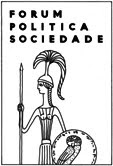Recent Shalit satire raises questions about artistic expression, national character
Recently we have seen a somewhat odd reality emerging within Israel’s public discourse. Someone, in the media or in politics, makes some kind of assumption or utters some slogan, and from that moment on it becomes the absolute truth.
Some of these slogans and assumptions have to do with the cultural and artistic sphere, including “freedom of expression and creation,” “the public’s right to know,” satire must not be limited,” “academic freedom,” etc.
Knesset Education Committee holds stormy discussion on satire TV show promotion depicting nude actors. 'Just like Goebbels was accused of Nazi propaganda, badmouthing Jews who were later butchered, so should creators of show be put on trial for anti-Semitism,' says National Union leader Katz
I certainly agree and understand that many of these slogans came from a genuine place of artistic creation, desire for freedom and openness, and an enlightened and democratic lifestyle. However, some of these catch phrases, despite being proven to be blatantly incorrect, continue to serve as sort of holy axioms or mantras that must not be touched or doubted.
Humor is necessary and important for humans and for society at large. Yet this is conditioned upon humor producing happiness, fun, and joy. However, I doubt the necessity of humor that produces hatred, alienation, crudeness, and evil.
What is the meaning of satire? Does it mean that in the name of satire and freedom of expression there are no limits or red lines? Is satire allowed to hurt people, views, beliefs, values, and truths, while anyone who seeks to limit it should immediately be considered an Iranian Khomeini supporter?
Is the cynical presentation of Gilad Shalit part of the new humor of popular satire show Eretz Nehederet? Does the public’s right to know include the media’s right to document the arrest of an Israeli mayor in the middle of the night, as recently happened? Does the public’s right to know include the right of photographers to wait outside Rona Ramon’s house even before she has been informed that her son was killed in an Air Force accident?
Where is the red line that distinguishes legitimate from vulgar? Does every word and caprice and craze truly deserve to be protected under freedom of creation?
Subscrever:
Enviar feedback (Atom)

Aqui fica um abraço de Bom Natal e excelente 2011!
ResponderEliminarFica aqui um convite para mais um momento de humor mas este no campo da politica nacional, visitem e vontem em:
ResponderEliminarhttp://assembleiasexy.com